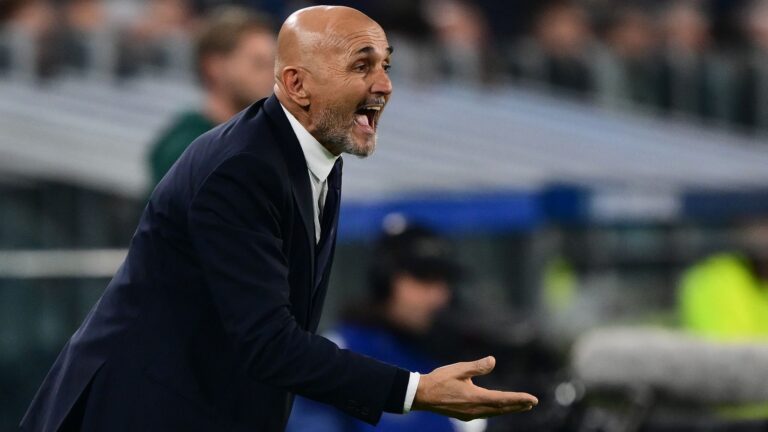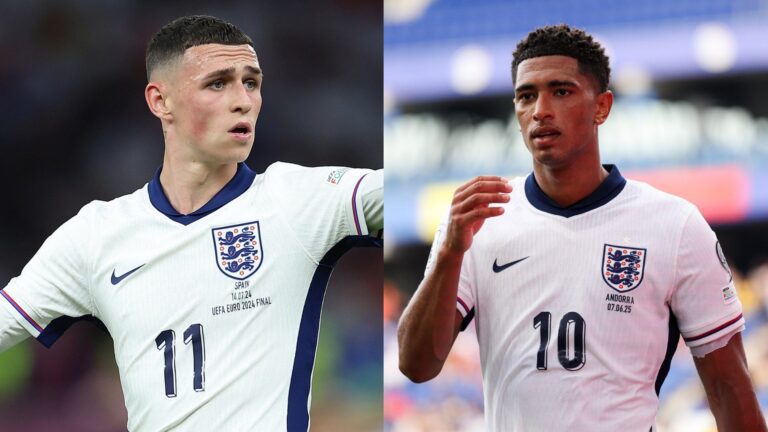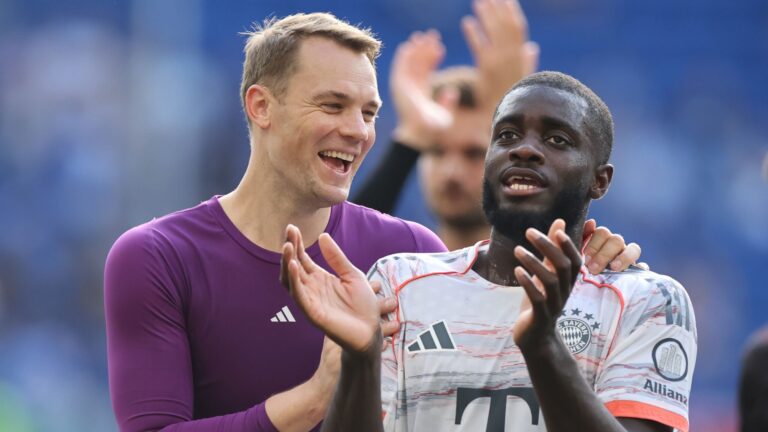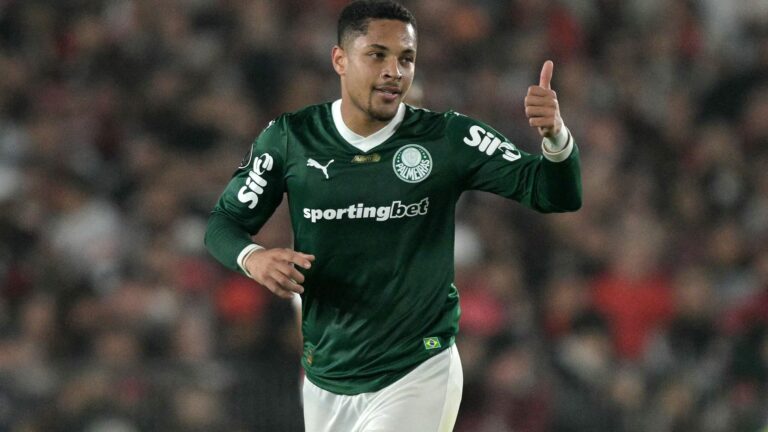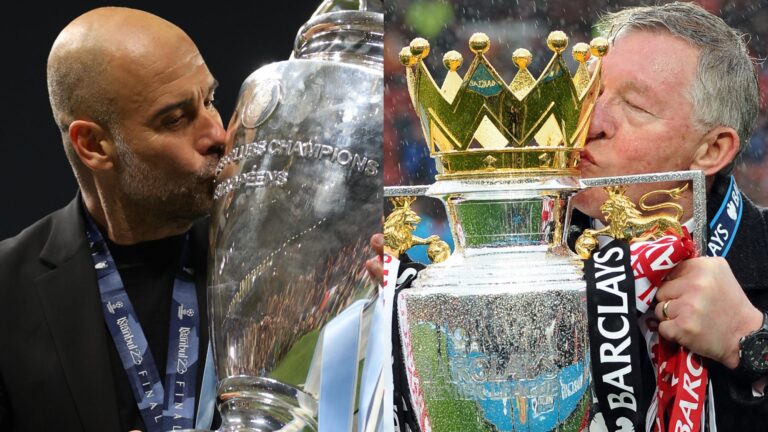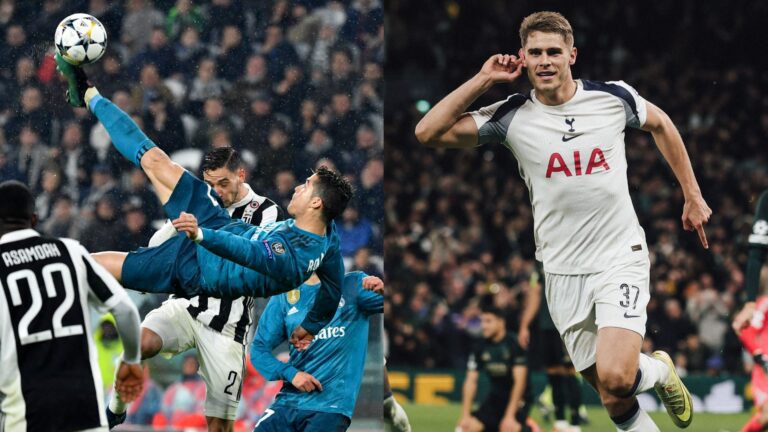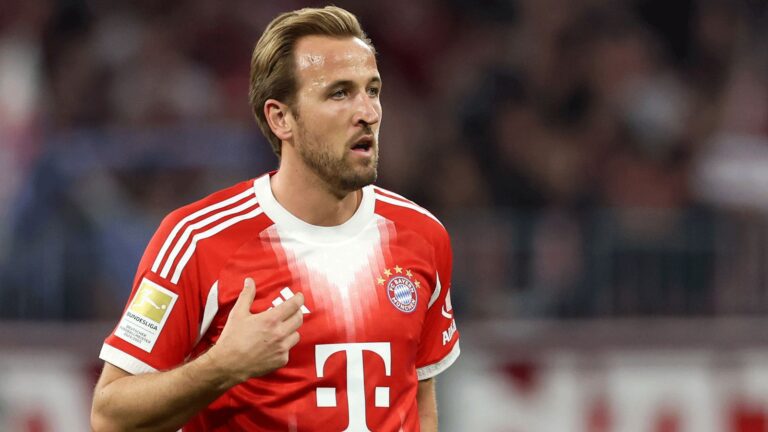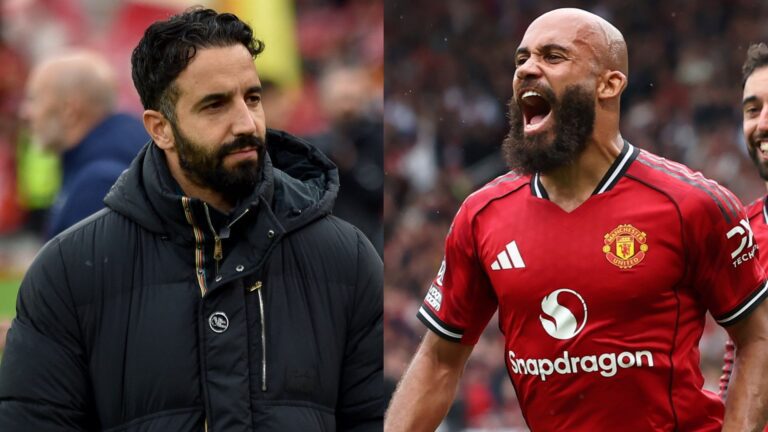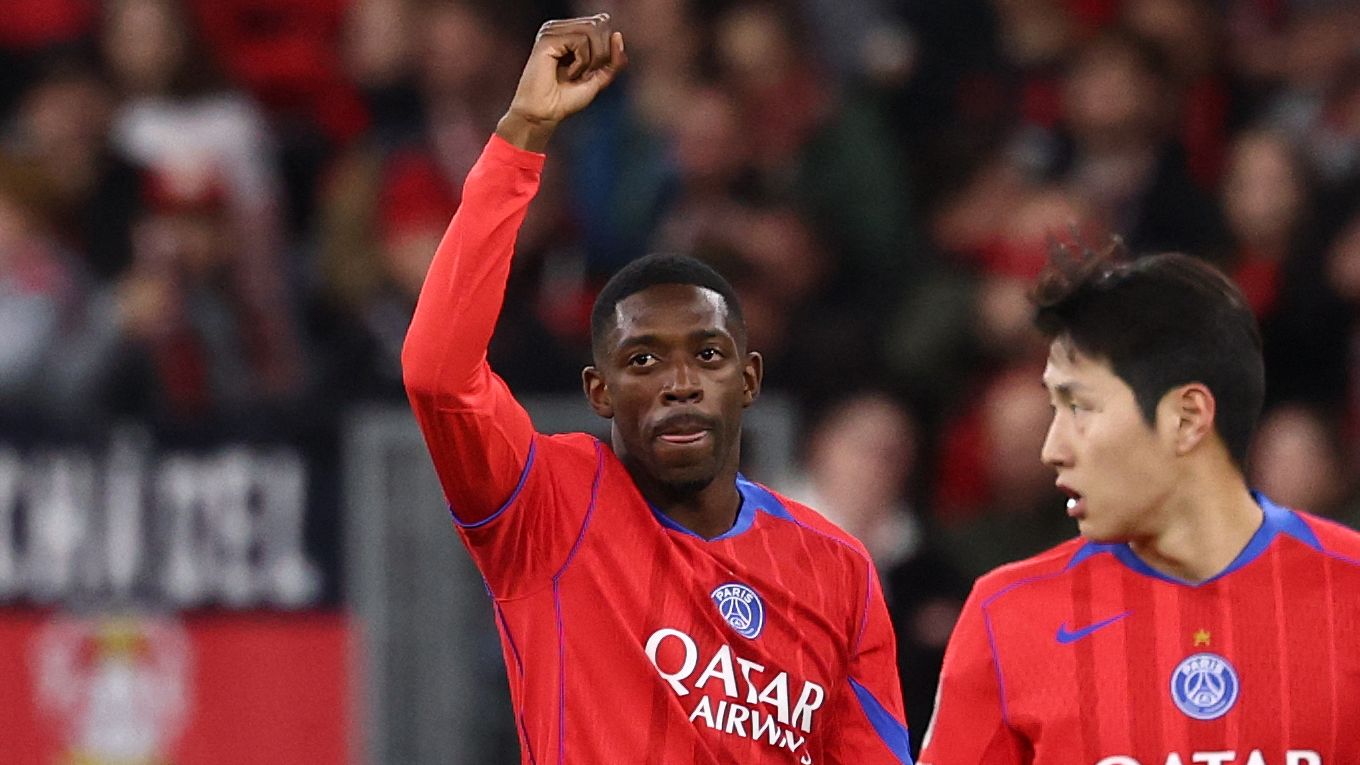
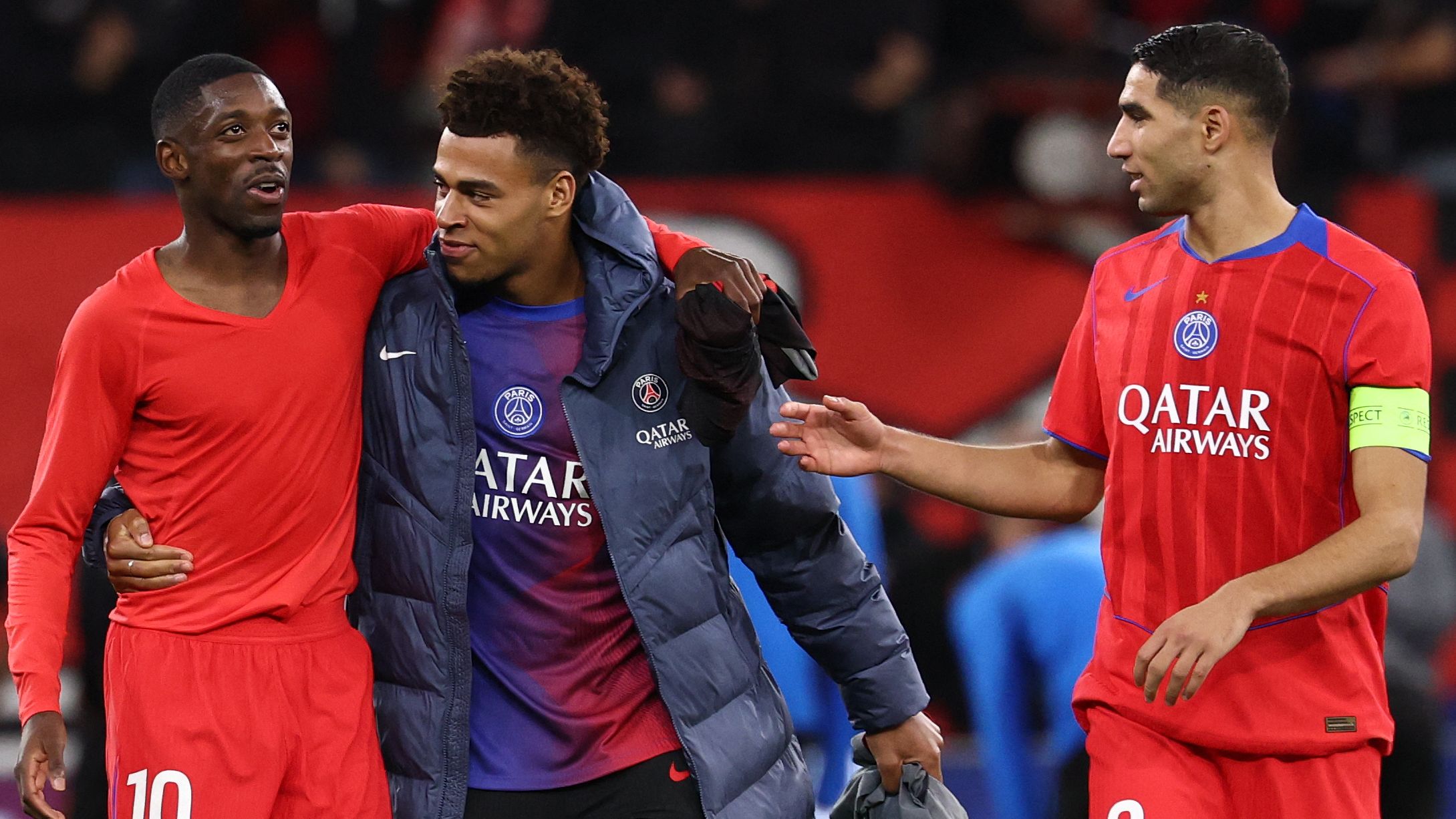
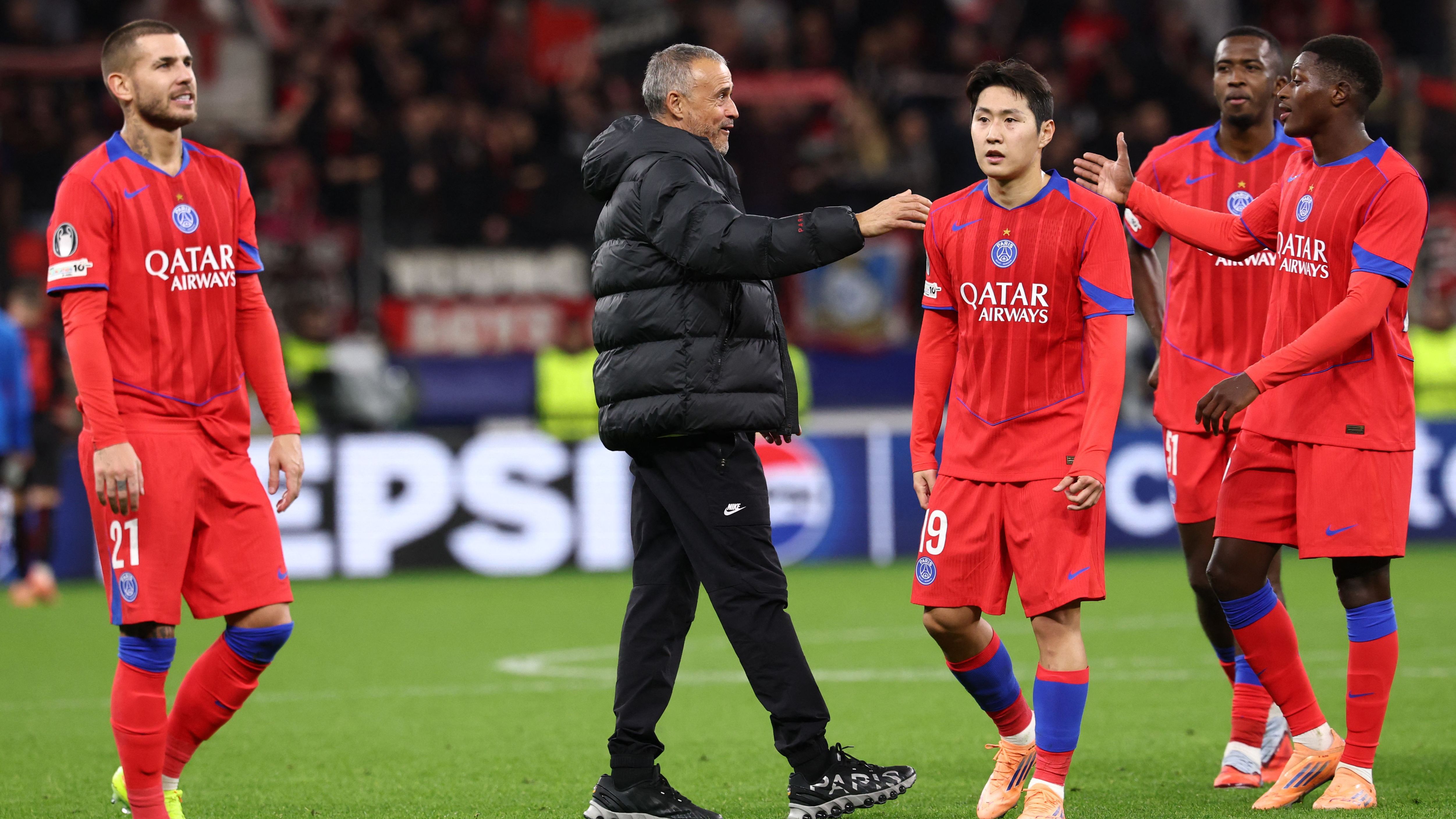
Dembele’s Dynamic Return Sparks PSG’s Crushing Champions League Triumph
In a display of sheer offensive brilliance, PSG and their star Ousmane Dembele delivered a commanding Champions League performance against Bayer Leverkusen, clinching a resounding 7-2 win that highlighted the French side’s unyielding pursuit of European supremacy. After sidelining himself for over a month due to injury, the acclaimed Ballon d’Or recipient wasted no time in making his mark, netting a crucial goal that underscored his essential role in the team’s strategy.
Early Dominance and Turning Points in the Match
From the outset, PSG, under the guidance of coach Luis Enrique as they protect their European title, quickly established their authority on the field. Just minutes into the game, an inventive pass from Nuno Mendes set up Willian Pacho for the initial breakthrough, setting a high-energy tone. The team’s aggressive tactics and overwhelming 82% possession in the opening half left Leverkusen on the back foot, with disciplinary issues escalating as red cards to Robert Andrich and Zabarnyi decisively tipped the scales in PSG‘s favor.
Building Momentum Before the Break
As the first half unfolded, PSG extended their advantage to 4-1, driven by Desire Doue’s double strike and Khvicha Kvaratskhelia’s precise finish, which effectively shattered Leverkusen‘s defensive setup. This surge not only demonstrated the Ligue 1 leaders’ control but also laid the groundwork for further exploits in the second period.
Dembele’s Post-Match Insights and Team Dynamics
In his interview with Canal+, Dembele openly shared his joy at rejoining the action and directly influencing the outcome. “We kicked off strongly with that early goal, but then faced some turbulence with the cards flying around. We might have sidestepped that red card, though-it’s just the way things played out,” he noted, alluding to Zabarnyi’s ejection without outright criticism.
The 2025 Ballon d’Or holder also commended his squad’s resilience amid the early chaos. “Goals from Desire [Doue] kept us in command, so we pushed forward in the second half. We’re only midway through the campaign, so staying focused is key as we maintain our steady progress.”
Reflecting on his recovery, Dembele acknowledged Enrique’s cautious approach. “I eased back in carefully; I was eager to play against Strasbourg, but the coach advised waiting. Tonight felt great-Bradley [Barcola] delivered a perfect pass, and I slotted it home effortlessly.”
His remarks revealed not just contentment with his physical state but also a pointed reference to the game’s pivotal moments, particularly Zabarnyi’s role in the outcome.
Strategic Choices and Emerging Talents in PSG’s Lineup
Enrique’s bold choice to deploy the season’s youngest starting eleven in the Champions League proved remarkably effective, with talents like Doue, Barcola, and Mendes stepping up and illustrating PSG‘s robust talent pool and promising horizon. The team embodied the essence of reigning champions throughout.
The coach’s blend of intense pressure and rapid counter-attacks effectively countered Leverkusen‘s adaptable style, with Achraf Hakimi and Vitinha directing play from the rear-Vitinha notably achieving a 98.4% pass accuracy on 128 attempts and adding a goal to boot. This mastery in possession and attack emphasized Enrique’s evolving impact on PSG‘s overall approach.
Additionally, skipper Marquinhos, returning from his own layoff, provided steady defense, which Enrique hailed as a testament to the group’s unity and determination in the face of setbacks and a packed schedule.
Leverkusen’s Downfall Amid PSG’s Assault
Despite a promising beginning, Bayer Leverkusen, who had remained undefeated in their previous eight outings, were utterly outmatched by PSG‘s fierce pressure and tactical superiority.
Aleix García’s penalty briefly revived their hopes, yet the German outfit couldn’t withstand the onslaught, especially once Dembele entered the fray, exposing weaknesses in their flanks.
Future Prospects for PSG and Dembele’s Role
With an impressive three straight victories in the group phase, PSG lead their section via goal differential and appear set for a seamless advance to the next stage. Up next is a Ligue 1 encounter with Brest, while Dembele concentrates on sustaining his form and full recovery for the upcoming challenges. His reintroduction provides Enrique with vital flexibility as the French powerhouse strives to juggle league and continental goals.
Should Dembele’s outing against Leverkusen serve as a benchmark, his resurgence might just ignite the momentum PSG requires to solidify their continental hold.
Ousmane Dembélé’s Stellar Return to PSG and Match Highlights
Dembélé’s Positive Form After Rejoining PSG
Ousmane Dembélé has been making waves in the football world with his rejuvenated performances since returning to Paris Saint-Germain (PSG). After a high-profile transfer from Barcelona, Dembélé’s integration into the PSG squad has been nothing short of impressive, especially in high-stakes matches like the recent 7-2 triumph over Bayer Leverkusen. Fans and analysts alike have noted his speed, dribbling skills, and precise assists as key factors in PSG’s dominant form this season.
Dembélé’s return has been a game-changer for PSG’s attacking line, with his ability to create scoring opportunities standing out. In the match against Bayer Leverkusen, he contributed directly with a goal and multiple assists, showcasing why he’s one of the most exciting players in European football. Keywords like “Ousmane Dembélé PSG return” have been trending as supporters discuss his seamless adaptation under manager Luis Enrique.
- Key statistics from Dembélé’s recent games: According to performance metrics, Dembélé has recorded an average of 3.5 key passes per game and a success rate of over 80% in dribbles, highlighting his positive form and influence on the team’s dynamics.
- Training and recovery insights: Sources close to the team mention that Dembélé’s focused training regimen post-injury has been crucial, allowing him to bounce back stronger and more consistent, which is vital for PSG’s Champions League aspirations.
- Fan reactions on social media: Many supporters have shared posts praising his “electric pace and vision,” with phrases like “Dembélé’s influential PSG return” becoming common in online discussions.
This positive momentum isn’t just about individual stats; it’s about how Dembélé’s style complements PSG’s high-press strategy, making him a central figure in their quest for trophies.
Breakdown of the 7-2 Triumph Over Bayer Leverkusen
The 7-2 victory over Bayer Leverkusen was a masterclass in attacking football, with PSG’s offensive prowess on full display. Dembélé played a pivotal role in several goals, using his signature speed and creativity to dismantle the opposition’s defense. This match, played in the UEFA Champions League group stage, underscored PSG’s dominance and Dembélé’s growing impact.
- Major highlights of the game:
- Dembélé’s early assist to Kylian Mbappé set the tone, leading to a quick 2-0 lead.
- A spectacular solo run by Dembélé in the second half resulted in his own goal, further extending the lead.
- The team’s overall fluidity was evident, with PSG recording 24 shots on target compared to Leverkusen’s 8.
Delving deeper, the match statistics reveal a stark contrast in possession and passing accuracy, with PSG holding 65% possession and completing 89% of their passes. Dembélé’s involvement in transitions was crucial, as he often exploited gaps in Leverkusen’s midfield, aligning perfectly with SEO-friendly terms like “Bayer Leverkusen 7-2 defeat analysis.”
Tactical Analysis of Dembélé’s Contributions
In this section, let’s break down Dembélé’s specific actions during the game. His ability to link up with teammates like Mbappé and Neymar created numerous scoring chances, emphasizing his role as a playmaker. For instance, his precise through-ball in the 55th minute directly led to a goal, demonstrating the kind of influence that makes “Ousmane Dembélé influential performances” a hot topic among football enthusiasts.
- Dembélé’s on-field decisions:
- He opted for short, incisive passes 70% of the time, focusing on quick build-up play.
- His dribbling success rate was 85%, allowing him to beat defenders and create space.
- Defensively, he tracked back effectively, winning two tackles that prevented counter-attacks.
This tactical depth not only boosted PSG’s attack but also highlighted Dembélé’s all-around growth, making him a valuable asset in modern football strategies.
Dembélé’s Criticism of Zabarnyi’s Red Card
One of the more controversial aspects of the Bayer Leverkusen match was the red card given to Leverkusen’s defender, Illia Zabarnyi. Dembélé didn’t hold back in his post-match comments, criticizing the decision as overly harsh and potentially game-altering. In interviews, he described the incident as a “freak challenge” that shifted momentum, even though PSG was already leading comfortably.
Dembélé’s remarks added fuel to ongoing debates about refereeing in top-tier competitions. Phrases like “Zabarnyi’s red card controversy” have gained traction online, with many agreeing that the call affected Leverkusen’s ability to mount a comeback. Despite the criticism, Dembélé emphasized maintaining focus on positive aspects, stating, “We can’t let one call define the game; it’s about our performance.”
- Reasons behind Dembélé’s critique:
- The red card came from a sliding tackle that some viewed as mistimed but not malicious.
- It reduced Leverkusen to 10 players, making the 7-2 scoreline feel somewhat lopsided to neutral observers.
- Dembélé pointed out that such decisions can influence future matches, urging better VAR reviews for fairness.
This incident has sparked wider conversations around “red card impacts in Champions League games,” with experts analyzing how it might affect team strategies moving forward.
The Broader Implications for Football Discipline
Exploring Zabarnyi’s red card further, it’s clear that incidents like this raise questions about player safety and rule enforcement. Dembélé’s comments highlighted the need for consistency, as similar tackles in previous games have only resulted in yellow cards. This has led to discussions on how “Zabarnyi red card criticism” could lead to reforms in officiating.
- Potential outcomes from the controversy:
- FIFA and UEFA might review footage to standardize red card criteria.
- Teams could adapt training to minimize risky challenges, focusing on cleaner play.
- For PSG, it reinforces the importance of capitalizing on advantages, as seen in their emphatic win.
In summary of this point, Dembélé’s outspoken nature brings a human element to the game, engaging fans who follow “Ousmane Dembélé latest news” for both his on-pitch heroics and off-pitch opinions.
Why Dembélé’s Form Matters for PSG’s Future
Dembélé’s current form is a beacon for PSG’s ambitions in domestic and European competitions. With upcoming fixtures against tough opponents, his ability to perform under pressure could be the difference. Keywords such as “PSG attacking strength” reflect how his contributions are integral to the team’s identity.
- Upcoming challenges for Dembélé:
- A clash with Real Madrid in the Champions League quarterfinals.
- Ligue 1 derbies that demand consistent high performance.
- Opportunities for personal awards, like being nominated for Player of the Month.
By maintaining this level, Dembélé not only elevates PSG but also solidifies his status as a global football star, keeping audiences hooked on his journey.


